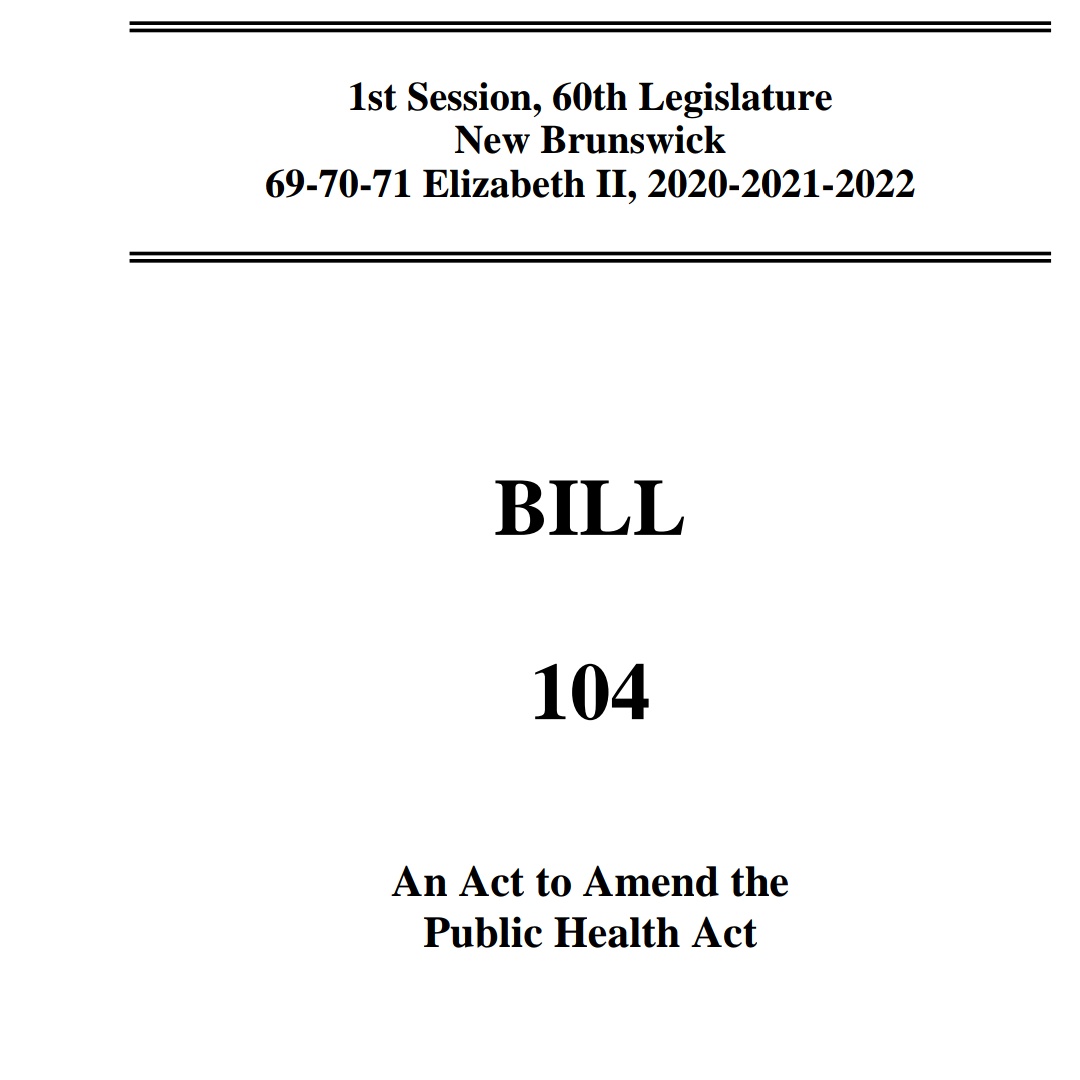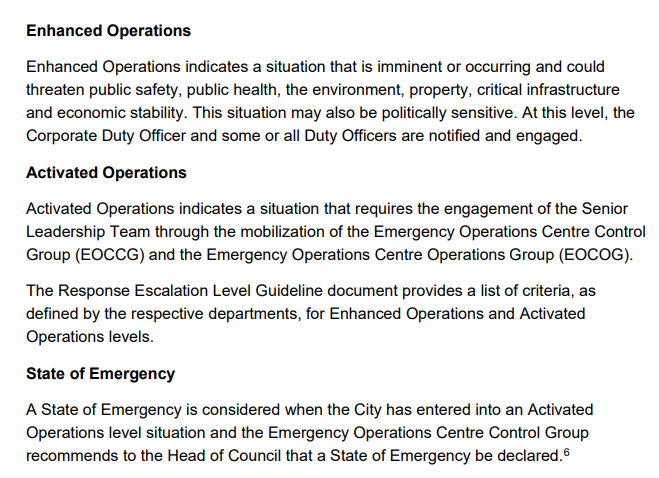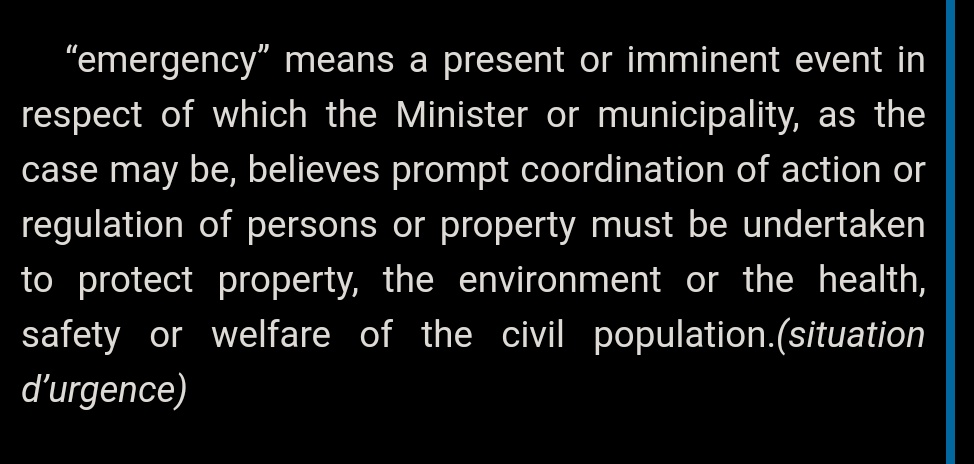
The last time a Lieutenant Governor unilaterally vetoed a bill occurred on April 19 1945 in PEI.
This was over a bill to allow physicians to prescribe a 6 month supply of alcohol. The @PEIGuardian reported LG Lepage was lobbied by Temperance Federation #peipoli #cdnpoli
This was over a bill to allow physicians to prescribe a 6 month supply of alcohol. The @PEIGuardian reported LG Lepage was lobbied by Temperance Federation #peipoli #cdnpoli

PEI LG LePage stated to the Temperance Federation a few days prior to his witholding of Assent to that he was a staunch prohibitionist all his life and was concerned about the bill. He refused to state whether he would veto the bill.
Conveniently the group had a legal opinion!
Conveniently the group had a legal opinion!

The logic of the federation was that since the bill to relax prohibited laws was not approved by the people (referendum?) they were calling on the LG to veto the bill as a matter of fairness #peipoli 

The Temperance Federation's logic was that since 1918 the will of the majority re prohibition should prevail and "a few men had no right to change a law". This law would destroy the "whole purpose and spirit of the prohibition act" #peipoli #cdnpoli 

Mr. Profitt said that the Island government put the amendment through in an "unfair and underhanded way" and islanders looked on the Legislature with contempt.
Miss Sterns assured the LG if he vetoed "generations to come would rise up and call him blessed #peipoli #cdnpoli
Miss Sterns assured the LG if he vetoed "generations to come would rise up and call him blessed #peipoli #cdnpoli

On April 19, 1945 during the prorogation ceremony PEI Lieutenant Governor LePage unilaterally refused to grant assent to the bill 

The @PEIGuardian editorial at the time expressed concern. The LG had a theoretical constitutional right to veto referencing a prior PEI LG veto on a non government "Church Union bill" in 1924 which would have United various churches on PEI without the consent of congregations 

The Guardian then states the LG was within their rights to veto but the advisability of their actions is another question.
In "one man's hands" a non elected "is placed a veto on all legislation" "which is more autocratic than even possessed by the House of Lords"
In "one man's hands" a non elected "is placed a veto on all legislation" "which is more autocratic than even possessed by the House of Lords"

Recall that appointees to the Office of LG at this time were generally partisan in nature. In PEI, "a future government may be at the mercy of a partisan LG who may render their labour's and legislation null and void through caprice or political malice aforethought" #peipoli 

Remember these actions were the consequence of a LG making the unilateral determination that he knew what the will of the people was moreso than the Legislative Assembly of Prince Edward Island which is an elected chamber. This was over a bill to relax prohibition!
The point is that there is a difference between having a power and exercising a power. Unless something is patently exceeding the democratic norms of society such as a Rhodesian style Unilateral Declaration of Independence, there is no role for a LG to substitute their own views
A good example is that in 1892, the PEI LG reserved a bill to abolished the Legislative Council, extended the franchise to mortgage holders and possibly a gerrymander. The Fed's did not grant assent but said that such bills are "entirely within the competence of the Legislature"
A subsequent bill was introduced in 1892 to merge the Legislative Assembly and Legislative Council into a new Legislative Assembly. PEI is the only province to do this. This is also why until the 1990s there were Assemblymen and Councilors in the Assembly.
Of course this isn't the end of the story. LePage's successor LG Bernard gave Royal Assent to the previously vetoed prohibition act bill by letters patent on September 28, 1945. The issue then became can royal assent be given to a vetoed bill? 

Naturally a course case arose where the Chief Justice of the PEI Supreme Court in 1948 considered that exact question when looking at costs re a prohibition act offence. Can a LG grant assent to a vetoed bill? 

The court ruled that due to the precision surrounding disallowence and reservation in the Constitution, excludes the possibility that a vetoed bill can be granted Royal Assent. A vetoed bill is a dead bill. So the 1945 amendment to the prohibition act was of no force 

Again nothing would prevent the Assembly from presenting the LG a new bill for Royal Assent, most likely in a new session due to procedural rules So a hypothetically vetoed bill today would not prevent an Assembly from passing the same bill again.
• • •
Missing some Tweet in this thread? You can try to
force a refresh












